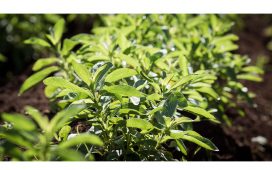To the Editor:
“Life as a Cab-Dodging Food App Delivery Guy,” by Andy Newman (front page, July 21), helped me to understand why I stopped using food apps.
I had a sprained knee and an infection, which kept me home for a while. So I started using an app to get my breakfast from a McDonald’s about two blocks away. In the beginning it was very convenient. The food arrived close to time expectations and the process was smooth.
But after a couple of months the process changed. There were big delivery delays. Often, the deliveries never even happened, but I was charged for them anyway. And getting the charges reversed was very complicated. Just like the delivery people, customers do not have human contact unless they try really hard.
When I started having trouble with my first app, I tried others. The deliveries arrived, but quite late compared with the estimates. It became so much of a hassle that I gave up.
Getting delivery people may be easy now because of the lack of better jobs available, but if these companies do not solve the problems for customers soon, they are not going to have a business.
Sheldon Dorenfest
Chicago
Protecting L.G.B.T.Q. Refugees
To the Editor:
Re “Refugees Who Need Safety, Fast,” by Annie Hylton and Malia Politzer (Op-Ed, July 22):
In May, the Women’s Refugee Commission undertook research in Nairobi and Mombasa, Kenya, and met with more than two dozen L.G.B.T.Q. refugees from the region. All had suffered physical and sexual violence in their home countries and in Kenya. Most did not have enough to eat or a safe place to sleep.
The writers’ suggestions to fast-track or bypass the resettlement process for L.G.B.T.Q. refugees are desperately needed. Yet resettlement alone will not solve their protection needs. They also need immediate protection in the places where they reside.
In Kenya, for example, a number of local organizations — some led by refugees themselves — are providing urgently needed services and shelter, like safe houses that offer income-generation activities.
Despite significant challenges, much can still be done to support and protect L.G.B.T.Q. refugees in insecure settings. We can start by funding the agencies that are working hard to protect these vulnerable communities.
Sarah Chynoweth
Kuala Lumpur, Malaysia
The writer is founder and director of the Sexual Violence Project at the Women’s Refugee Commission, an NGO based in New York.
Undisclosed Disabilities
To the Editor:
Re “Disclosing Your Disability to Your Employer,” by Lizz Schumer (Smarter Living, July 15):
People with invisible chronic illnesses go to work, raise children, get degrees. They manage these accomplishments while coping with ever-present symptoms, such as pain and fatigue.
Healthy people don’t realize that to be effective at a job, be alert at a social function or be attentive to a child, those with invisible illnesses must resist the temptation to give up or to cave in to their symptoms.
Not only are their symptoms invisible, but their courage is also. As Ms. Schumer points out, invisibility of an illness “protects me from a whole universe of discrimination,” but nondisclosure of an invisible illness deprives the person of much needed and deserved respect and admiration.
Paul J. Donoghue
Mary E. Siegel
Stamford, Conn.
The writers are the authors of “Sick and Tired of Feeling Sick and Tired: Living With Invisible Chronic Illness.”
To the Editor:
Re “Merriment, and Darkness, Too” (Critic’s Notebook, July 23):
I love Jesse Green’s description of Ontario’s immersive Stratford Festival: “Not only do you see the play’s characters everywhere, but you also feel the world taking up the threats and questions of the work.”
As a teenager from Columbus, Ohio, in 1977, I drove north to the festival to see “As You Like It,” a play I’d scarcely heard of. Maggie Smith and Brian Bedford made the story vivid, urgent and beautiful, exceeding what I thought was possible, transforming me as if I were a character in a Shakespeare play.
I am happy to know that the magic continues.
Rob Ackerman
New York
The writer is a playwright.






